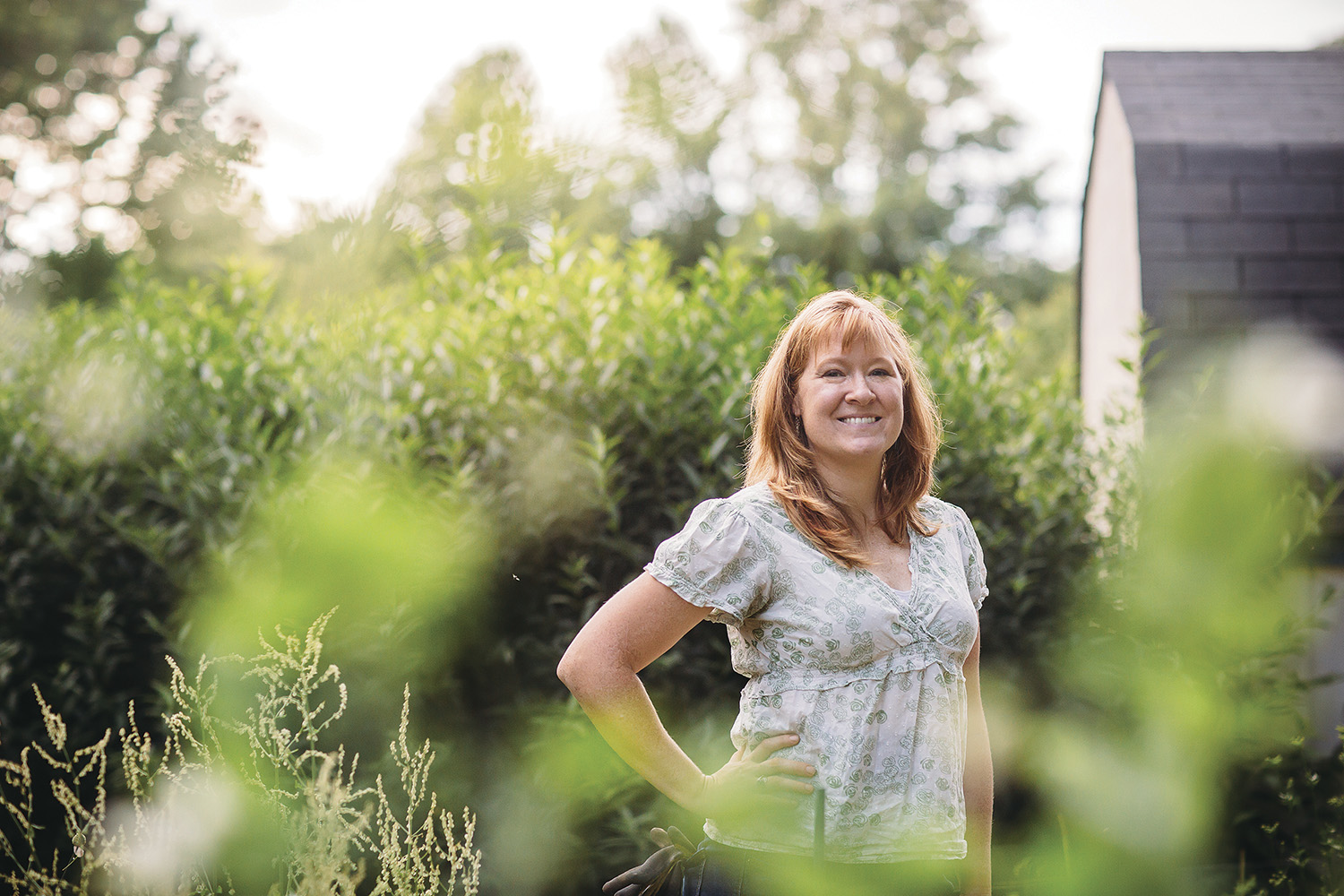
Rachel Strivelli earned a Masters degree in Soil Science from the renowned University of British Columbia — but her friendly, open approach gets just as much credit for her success as a garden coach. Most of the time, a newbie’s fear of failed produce is unfounded. “People just need help demystifying the whole process,” she says.
A post-college stint working on a farm awakened her tastebuds when she realized most grocery-store produce could never compare to local/organic. “The difference between a fresh tomato and green bean, compared to un-fresh, is so striking,” she says. Now she strives to awaken that epiphany in others, one-on-one.
Strivelli opened her custom consulting business, Get Your Garden Growing, about a year-and-a-half ago. Never mind her various past agricultural jobs — her stint as a sixth-grade science teacher may have served her just as well in nurturing hesitant home gardeners. “Many people think they need countless hours, much acreage, and a high level of expertise to devote to their gardening in order to be successful — my clients often come to me feeling a bit overwhelmed and intimidated,” she says. “I try to show folks a different approach.” It doesn’t matter if you’ve got just a few containers on an apartment patio, a couple raised beds in the yard, or a full-on hobby farm — no matter the space, she says, “anyone can produce a wonderful harvest.”
Her clientele is mostly families who want their kids to enjoy diverse fruits and vegetables and to know where food comes from, and groups she instructs in private homes or at the East Asheville location of the Fifth Season Gardening store.
Soil quality and other important technical issues aside, plants are not actually the fussy divas we’ve come to believe they are, she insists. “The fact is … plants want to grow. As humans are social animals and tend to associate in groups, so too are plants natural thrivers — most of the time they’re going to do OK, unless conditions are terrible.” She offers tips and tools, a few at a time — and waits for the eureka moment. “Once that first carrot is picked or the first bean sprout breaks through the soil, people are invested. If we can get to that point, it’s a skill they’ll use for the rest of their lives.”
It’s not knowledge that can be rushed, though. “Folks must also remember that it’s cumulative —they’ll increase their success each year as they try new things and learn more.”
Her go-to easy-grow veggies are beans, potatoes, “all types of salad greens, from arugula to kale,” and radishes. “Beans grow vertically, making them space savers, and they’re easy for kids to handle and harvest,” she points out. Radishes, she says, offer “quick gratification,” harvesting in as little as two months: “I’ve planted them from March through October.” For summer, low-maintenance kale and swiss chard are ideal. “If you’re gone for a month, they’ll be fine.”
In her personal gardening, Strivelli doesn’t shy away from unusual plantings or crops outside the grow zone: last year she reaped sorghum and peanuts. “I like trying new things, because if I’ve grown something, I have better plant knowledge and can inform my clients more fully,” she says. This summer, she’s experimenting with horseradish and the uncommon root vegetable skirret, called “oyster plant” in medieval Europe because of its taste.
“I’m interested in many vegetables that used to be common but fell out of favor because they didn’t ship well as the age of industrialized agriculture progressed,” she explains. She also knows that without agricultural education, some kids might grow up to think even common veggies are an exotic commodity. As a board member of the outreach group FEAST (Fresh Easy Affordable Sustainable Tasty), she spreads gardening’s good news to students in the Asheville City Schools system.
“Gardening and cooking are essential skills, and it’s so important to help kids interact with their food and the environment, especially if they happen to live in a place with few grocery options, otherwise known as a food desert. If I can convey to my students that edible gardening offers superior nutrition, visual beauty, and sustainability — because no fossil fuels are used to transport produce — then I’ve done my job.”
To find out more about Rachel Strivelli’s garden coaching and outreach work, see getyourgardengrowing.com
